News
-
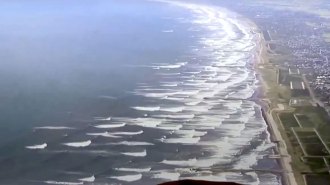 Earth
EarthWhy devastating tsunamis didn’t follow the Russia earthquake
Geologists unpack why the magnitude 8.8 temblor — the sixth largest ever recorded — fomented waves that reached Japan and Hawaii but caused little damage.
By Nikk Ogasa - Health & Medicine
A molecule produced by gut microbes may help spur heart disease
A leftover from microbes’ meals is linked to early heart disease in people. In mice, it contributed to plaque buildup in the arteries.
-
 Quantum Physics
Quantum PhysicsA quantum computer goes to space
Quantum computers in space could be useful for communications networks or for testing fundamental physics.
-
 Artificial Intelligence
Artificial IntelligenceCan AI ‘feel’ guilt?
Research based on game theory suggests if we program AI agents with a sense of guilt, they could behave more cooperatively, much like humans do.
-
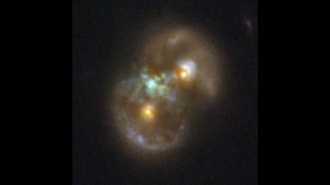 Astronomy
AstronomyTwo colliding galaxies may have birthed this black hole
An infinity symbol–shaped galaxy hosts an active supermassive black hole. The growing giant may have come from the aftermath of a galactic smashup.
-
 Health & Medicine
Health & MedicineYou may already have some protection from bird flu, but don’t count on it
Studies suggest that people who had seasonal flus or vaccinations have low antibody levels against H5N1 bird flu.
-
 Health & Medicine
Health & MedicineSeeing sick faces may prime the immune system to repel invaders
Seeing sick-looking faces in virtual reality triggers brain circuit changes related to threat detection and boosts activity of certain immune cells.
By Simon Makin -
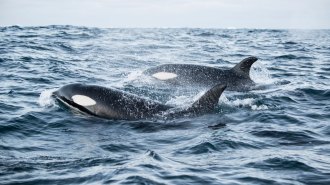 Animals
AnimalsSome killer whales hunt in pairs to maximize their bounty
Drone footage from Norway shows killer whales using a highly coordinated and cooperative hunting technique to catch herring.
-
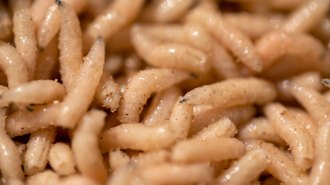 Archaeology
ArchaeologyMaggots may have been on the Neandertal menu
Maggots on rotting meat may have given Neandertals’ a fatty, nitrogen-rich boost, a study of their bones suggests.
-
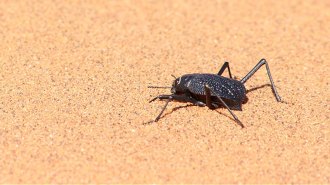 Animals
AnimalsThis desert beetle runs to cool off
After a sprint, the temperature of the beetle Onymacris plana drops. Efficient running, a body built for cooling and a little bit of lift all help.
- Health & Medicine
AI is designing proteins that could help treat cancer
A team used generative AI to enhance T cells’ ability to fight melanoma. The immunotherapy approach needs more testing before use in cancer patients.
By Meghan Rosen -
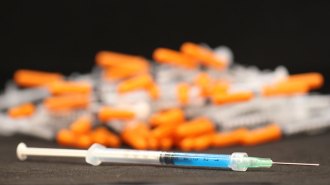 Health & Medicine
Health & MedicineAn injected gel could make drugs like Ozempic last longer
GLP-1 drugs for diabetes and weight loss are difficult for some people to inject weekly. A new slow-release gel, tested in rats, could help.
By Meghan Rosen